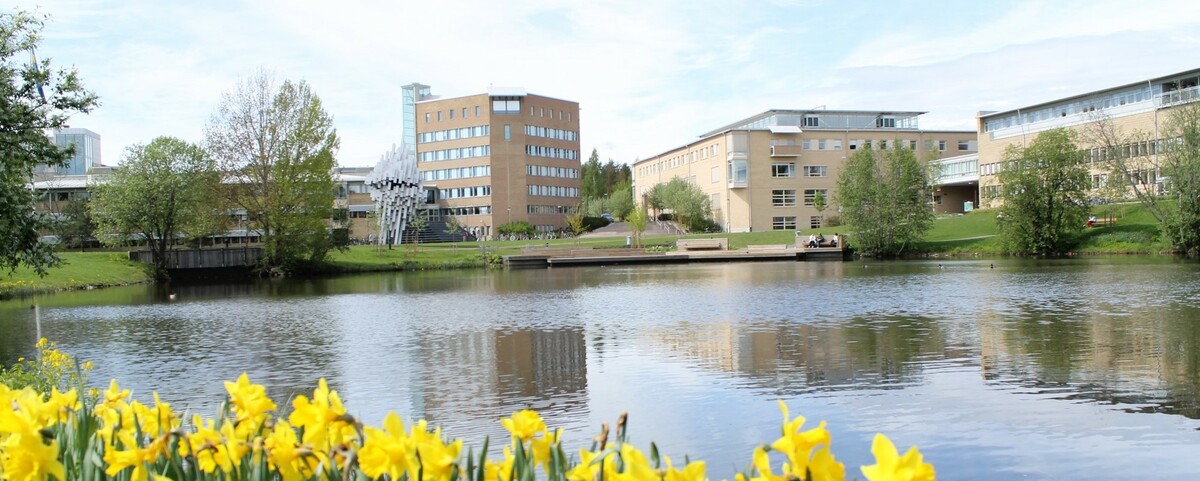Post doctor (2 years) within infection and cancer biology - Hiring in process/Finished, not possible to apply
This advert is not available!
Umeå University, Faculty of Science and Technology
Umeå University is one of Sweden’s largest higher education institutions with over 37,000 students and about 4,700 employees. The University offers a diversity of high-quality education and world-leading research in several fields. Notably, the groundbreaking discovery of the CRISPR-Cas9 gene-editing tool, which was awarded the Nobel Prize in Chemistry, was made here. At Umeå University, everything is close. Our cohesive campuses make it easy to meet, work together and exchange knowledge, which promotes a dynamic and open culture.
The ongoing societal transformation and large green investments in northern Sweden create enormous opportunities and complex challenges. For Umeå University, conducting research about – and in the middle of – a society in transition is key. We also take pride in delivering education to enable regions to expand quickly and sustainably. In fact, the future is made here.
Are you interested in learning more? Read about Umeå university as a workplace
The Department of Molecular Biology seeks a postdoctor to a project studying the microenvironment modulation by bacterial genotoxin-induced senescence infection, inflammation and cancer. The position is full-time for two years, access by agreement.
Project description and working tasks
The research team studies the effect of acute and chronic infection/intoxication in vitro and in vivo with bacteria expressing genotoxins, which cause DNA damage in mammalian cells.
The project aims at characterizing the effects of the genotoxins on the tissue architecture (e. g. intestinal tract, liver and spleen), the host response (special focus on the immune response), induction of DNA damage and genomic instability caused by short term and long-term infections/intoxication in organoids and 3D models as well as in ex vivo and in vivo models.
The techniques routinely used in this project are: mice infection, mainly but not exclusively via gavage, intraperitoneal injections, necropsy, paraffine tissue embedding, tissue cutting, multiplex immunofluorescence, immunohistochemistry and multiplex RNAscope analysis, tissue culture and development of 3D culture models, infection with ex vivo primary material, purification of peripheral blood mononuclear cells, macrophage isolation, differentiation, bacterial infection of the in vitro and ex vivo models.
Qualifications
To be appointed under the postdoctoral agreement, the postdoctor is required to have completed a doctoral degree or a foreign degree deemed equivalent to a doctoral degree. This qualification requirements must be fulfilled no later than at the time of the appointment decision.
To be appointed under the postdoctoral agreement, priority should be given to candidates who completed their doctoral degree, according to what is stipulated in the paragraph above, no later than three years prior. If there are special reasons, candidates who completed their doctoral degree prior to that may also be eligible. Special reasons include absence due to illness, parental leave, appointments of trust in trade union organisations, military service, or similar circumstances, as well as clinical practice or other forms of appointment/assignment relevant to the subject area. Postdoctors who are to teach or supervise must have taken relevant courses in teaching and learning in higher education.
Doctoral degree should span within the topics of Cancer biology, Immunology, Molecular and Cell Biology.
The candidate should show excellent capacity to develop independently the assigned project(s), have good ability to be a team-player, interact co-operatively with senior and junior colleagues and sharing laboratory and research resources. Previous knowledge in the field on colonic homeostasis and relation to colorectal cancer (CRC) development, and good experience with mouse models of CRC, and all the techniques required for carry on the project above specified (including a FELASA B certificate), as well as good skills in oral and written English are required.
Merits are experience with developing mammalian in vitro 3D organotypic and ex vivo mucosal models, very good knowledge in co-culture systems of eukaryotic cells and gut microbiota, experience in supervising students, knowledge in the field of immunology, and ability to independently write grant applications.
Application
A full application should include:
- Cover letter (max one page)
- Curriculum vitae (CV) with publication list
- Verified copy of doctoral degree certificate or documentation that clarifies when the degree of doctor is expected to be obtained,
- Other documents that the applicant wishes to claim.
- Contact information to two persons willing to act as references.
The application must be written in English (preferably) or Swedish. The application is made through our electronic recruitment system. Documents sent electronically must be in PDF format. Log in to the system and apply via the button at the end of this page. The closing date is 30th of June 2022.
We look forward to receieve your application!
More information
For more information, please contact:
Teresa Frisan
Professor Cellular and Molecular Biology
Dept Molecular Biology
teresa.frisan@umu.se
| Type of employment | Temporary position |
|---|---|
| Contract type | Full time |
| First day of employment | As agreed |
| Salary | Monthly salary |
| Number of positions | 1 |
| Full-time equivalent | 100% |
| City | Umeå |
| County | Västerbottens län |
| Country | Sweden |
| Reference number | AN 2.2.1-1034-22 |
| Contact |
|
| Union representative |
|
| Published | 08.Jun.2022 |
| Last application date | 30.Jun.2022 |

